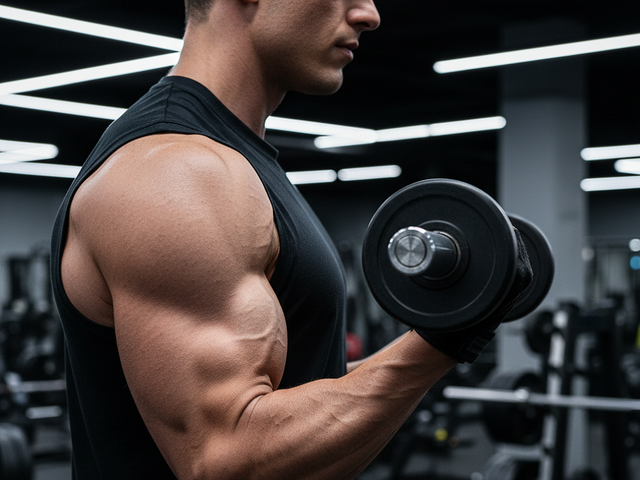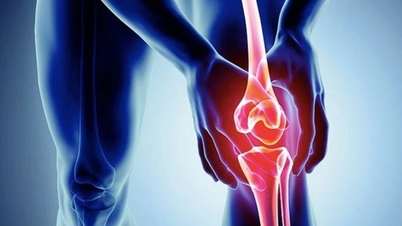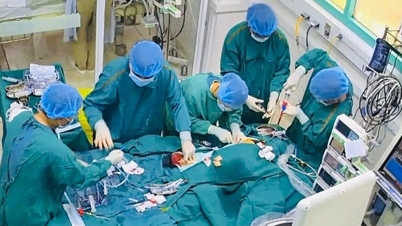Micronutrients don't directly build muscle like protein, but they regulate hormones, reduce inflammation, increase protein synthesis, and improve muscle recovery. All of these are essential for developing lean muscle mass naturally, according to the health website Verywell Health (USA).

Not only protein, but zinc and several other nutrients are also very important for muscle growth.
PHOTO: AI
A study published in the Journal of the International Society of Sports Nutrition showed that micronutrient deficiencies can reduce recovery ability and muscle growth rate by up to 30%. For effective natural muscle growth, in addition to protein, the body needs to absorb sufficient amounts of the following nutrients:
Zinc activates testosterone.
Zinc is a trace mineral that plays a central role in regulating sex hormones and protein synthesis. Zinc deficiency significantly reduces testosterone levels, the main hormone that promotes muscle growth and maintenance.
Additionally, zinc supports muscle tissue regeneration after exercise by activating enzymes necessary in DNA and protein synthesis. Zinc is also linked to immune system health, helping the body avoid inflammation and reduce the risk of exhaustion from high-intensity training.
Foods rich in zinc include beef, oysters, pumpkin seeds, and lentils. For gym-goers, the recommended daily intake by the U.S. National Institutes of Health (NIH) is 11 mg for men and 8 mg for women.
Magnesium reduces muscle cramps.
Magnesium is a mineral involved in over 300 biochemical reactions in the body, including the mechanisms of energy production for cells and muscle contraction and relaxation. People deficient in magnesium often experience muscle cramps, fatigue, and poor recovery after exercise.
Magnesium helps balance electrolytes, stabilize heart rate, and reduce inflammatory responses after high-intensity exercise. Additionally, this mineral affects insulin sensitivity. Good insulin sensitivity allows muscle cells to absorb glucose and amino acids more efficiently, thereby optimizing muscle growth.
Foods rich in magnesium include leafy green vegetables, almonds, bananas, and oats. Adult men should aim for 400-420 mg of magnesium per day, while women should aim for 310-320 mg.
Vitamin D improves calcium absorption.
Vitamin D is not only essential for bones but also plays a crucial role in muscle strength. Research published in The Journal of Clinical Endocrinology & Metabolism shows that people deficient in vitamin D have up to a 30% lower risk of reduced muscle strength compared to those with normal levels. Vitamin D stimulates muscle protein synthesis, increases muscle contraction, and supports calcium absorption. Calcium is an essential mineral for muscle contraction and structural maintenance.
In particular, vitamin D also affects the hormone testosterone. A randomized trial published in the journal Hormone and Metabolic Research found that supplementing with 3,000 IU of vitamin D per day for 12 weeks significantly increased testosterone levels in men.
We can absorb natural sources of vitamin D by exposure to sunlight or by eating salmon, egg yolks, and fortified milk.
Omega-3s promote muscle protein synthesis.
Omega-3 fatty acids, including EPA and DHA, are not only good for cardiovascular health but also crucial for muscle development. This is because omega-3s help the body synthesize and utilize amino acids to create new tissues, especially muscles, enzymes, hormones, and cells. Foods rich in omega-3s include fatty fish such as salmon, sardines, and mackerel. Plant-based sources include chia seeds and flax seeds, according to Verywell Health .
Source: https://thanhnien.vn/4-duong-chat-de-bi-thieu-khien-tap-gym-khong-tang-co-185251023193517387.htm














































































































Comment (0)